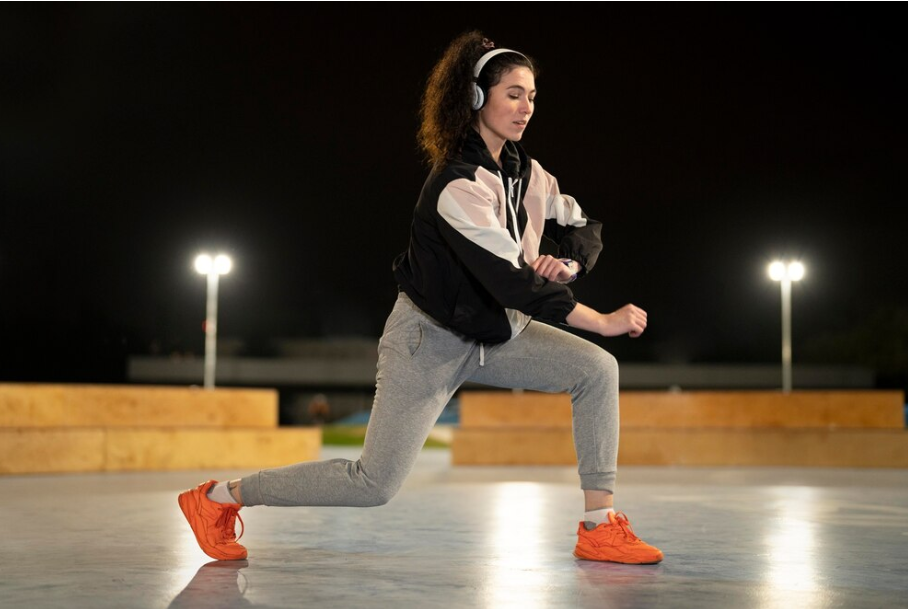For many of us, fitting exercise into a busy schedule often means squeezing in a workout late in the evening. But this raises a common question: How late is too late to work out? While exercising at night can be convenient, some worry that it might interfere with sleep or recovery.
This article explores the science behind late-night workouts, their potential benefits and drawbacks, and how to determine the best time for your evening exercise.
The Science of Exercise and Sleep
Exercise has numerous benefits, including better cardiovascular health, improved mood, and increased energy levels. However, late-night workouts have been associated with mixed effects on sleep.
- Exercise and Energy Levels:
Physical activity stimulates the release of endorphins and adrenaline, which can make you feel more awake and alert. This might interfere with your ability to wind down if done too close to bedtime. - Body Temperature and Sleep:
Exercise raises your core body temperature, which can delay the onset of sleep. Since your body cools down as part of its natural sleep cycle, this temporary increase might disrupt your readiness to fall asleep. - Individual Variability:
The impact of late workouts on sleep varies from person to person. Some people feel energized after exercise, while others find it relaxing and sleep-promoting.
When Is It Too Late to Work Out?
There’s no universal cutoff time for evening workouts. The answer depends on your individual schedule, body, and fitness goals. However, here are some general guidelines to help you decide:
1. Consider Your Sleep Schedule
- Experts recommend finishing intense workouts at least 1–2 hours before bedtime to allow your body to cool down and relax.
- If you’re doing low-intensity activities like yoga or stretching, you may be able to work out closer to bedtime without negative effects.
2. Monitor Sleep Quality
- If you notice difficulty falling asleep or feeling rested after late workouts, it might be a sign that the timing isn’t right for you.
- Track your sleep patterns to see how different workout times affect your rest.
3. Match Workout Intensity to Timing
- High-Intensity Workouts: Best completed earlier in the evening (e.g., before 8 PM) to avoid overstimulating your body.
- Low-Intensity Workouts: Activities like yoga, Pilates, or a light walk can be done closer to bedtime and might even enhance relaxation.
Benefits of Late-Night Workouts
For those with packed schedules, late-night exercise can be a practical and effective way to stay active. Here’s why it works for many people:
1. Stress Relief
- Exercise after a long day can help reduce stress, clear your mind, and improve your mood before bed.
2. Improved Performance
- Your body’s temperature and muscle flexibility peak in the late afternoon and early evening, potentially improving performance during nighttime workouts.
3. Fewer Distractions
- Late-night gyms are often less crowded, allowing you to focus on your workout without interruptions.
4. Enhanced Sleep for Some
- For certain individuals, moderate evening exercise can promote better sleep by reducing anxiety and improving overall relaxation.
Drawbacks of Late-Night Workouts
While there are advantages, working out late in the evening might not be suitable for everyone. Consider these potential drawbacks:
1. Sleep Disruption
- Intense exercise close to bedtime might leave you feeling too alert, making it harder to fall asleep.
2. Inconsistent Energy Levels
- After a long day, you may feel too tired or unmotivated to exercise effectively at night.
3. Recovery Challenges
- If your sleep is disrupted by late workouts, your body might struggle to recover fully, potentially affecting long-term fitness progress.
Tips for Late-Night Workouts
If nighttime is your only time to exercise, here are some strategies to make the most of it:
1. Time Your Workouts Wisely
- Aim to finish workouts at least 1–2 hours before bed to allow your body time to relax.
2. Focus on Post-Workout Relaxation
- Incorporate post-exercise routines like stretching, deep breathing, or meditation to promote relaxation.
3. Watch Your Nutrition
- Avoid heavy or high-sugar meals immediately after a workout, as they can interfere with sleep. Opt for light, protein-rich snacks if needed.
4. Experiment with Intensity Levels
- Try different types of workouts (e.g., strength training, yoga, or light cardio) to see what works best for your body and sleep.
5. Listen to Your Body
- If late workouts leave you feeling overly energized or restless at night, consider adjusting the timing or intensity.
FAQs About Late-Night Workouts
Q: Will working out at night affect my sleep?
A: For some people, intense workouts close to bedtime can make it harder to fall asleep. However, moderate or low-intensity exercises might promote relaxation and better sleep.
Q: Can I build muscle with late-night workouts?
A: Yes, you can build muscle regardless of the time you work out. Consistency, proper nutrition, and recovery are more important than workout timing.
Q: Is it better to work out in the morning or evening?
A: Both have benefits. Morning workouts boost metabolism and establish a routine, while evening workouts can align with peak performance times and reduce stress.
Q: How close to bedtime can I exercise?
A: Ideally, finish workouts at least 1–2 hours before bed, especially if the exercise is intense.
Conclusion
So, how late is too late to work out? The answer depends on your personal schedule, workout intensity, and how your body responds. While intense exercise immediately before bed might interfere with sleep for some, others find evening workouts relaxing and beneficial. The key is to listen to your body and experiment with different timings to see what works best for you.
If nighttime is the only time you can work out, don’t stress—just plan your routine wisely, prioritize recovery, and enjoy the benefits of staying active!
